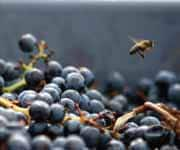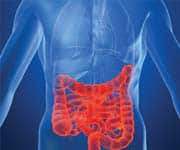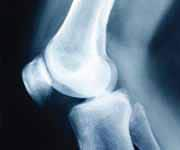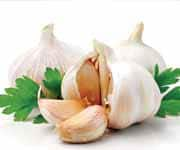Life Extension Magazine®
Resveratrol Increases Life Span in Bees | |
The journal Aging reported the results of research involving honey bees which revealed an ability for resveratrol, a compound that occurs in grapes, to reduce food intake and extend life.* Although resveratrol has been shown to lengthen the lives of yeast, worms, fruit flies, and mice, the study is the first to evaluate the effect of the compound in honey bees. Researchers compared the effects of an unenhanced honey bee diet to diets containing two different concentrations of resveratrol. The lower concentration of resveratrol was associated with a 38% increase in average life span and the higher concentration with a 33% increase under normal oxygen conditions. Maximum life span, which defines the longest lived members of a species (in contrast with average life expectancy) also increased in resveratrol-fed bees. Editor's Note: In an effort to uncover the mechanisms involved in resveratrol's benefits, the researchers examined the compound's effect on appetite. In comparison with bees that did not receive resveratrol, those given the compound had less interest in consuming sugar solutions unless the sugar was highly concentrated. Further experimentation revealed that resveratrol reduced food consumption in bees allowed to eat as much as they liked of diets containing carbohydrate and protein. —D. Dye | |
| Reference | |
*Aging. 2012 Jul;4(7):499-508. | |
Omega-3 Fatty Acid Supplementation Improves Marker of Aging | |
In an article published in Brain, Behavior, and Immunity, Jan Kiecolt-Glaser of Ohio State University and her associates report a protective effect for omega-3 fatty acids in the preservation of telomere length among middle-aged and older men and women. Reduced telomere length has been correlated with age-related disease and premature mortality.* Telomeres—bits of DNA that cap and protect the ends of chromosomes—have been compared to the coating at the ends of shoelaces that prevent them from fraying. The current investigation revealed an increase in telomere length in association with reductions in the participants' plasma omega-6 to omega-3 fatty acid ratio, which declined in those who were supplemented with 1.25 grams or 2.5 grams per day EPA and DHA. Those who received the omega-3 fatty acids also had reduced levels of oxidative stress in comparison with those who received a placebo. Editor's Note: Dr. Kiecolt-Glaser remarked that, "The telomere finding is provocative in that it suggests the possibility that a nutritional supplement might actually make a difference in aging." —D. Dye | |
| Reference | |
*Brain, Behav, Immun. 2012 Sep 23. | |
Melatonin, Exercise Show Potential as Alzheimer's Treatments | |
The journal Neurobiology of Aging published a report by researchers in Spain that describes a benefit for exercise and the hormone melatonin in a mouse model of Alzheimer's disease.* Scientists studied the effects of the therapies in mice with three mutations that result in the characteristics of Alzheimer's disease. The animals, which were in the moderate to advanced phases of the disease, were divided to receive 10 mg melatonin per kilogram of body weight, a daily exercise regimen consisting of unrestricted use of a running wheel, or both treatments. Alzheimer's mice that received neither therapy and a group of mice that did not have the mutations served as controls. Engaging in exercise reduced behavioral and psychological symptoms, including anxiety, emotionality, and a lack of exploration. Both melatonin and exercise resulted in decreases in cognitive impairment, brain oxidative stress, amyloid beta, and mitochondrial DNA reductions. Combined treatment with exercise and melatonin resulted in additional mitochondrial benefit. Editor's Note: While the recommendation of melatonin for humans with Alzheimer's disease may be premature at this stage, coauthor Darío Acuña-Castroviejo of the University of Granada noted that, "Other studies which use melatonin as medication show its high level of effectiveness." —D. Dye | |
| Reference | |
* Neurobiol Aging. 2012 Jun;33(6):1124.e13-29. | |
Higher Vitamin D Levels Associated with Fewer MS Symptoms | |
The Annals of Neurology reported the finding of researchers at the University of California, San Francisco of a reduction in brain lesions and disease activity in multiple sclerosis (MS) patients who had higher levels of vitamin D.* The discovery is the result of the five year EPIC study of 469 men and women with multiple sclerosis who underwent yearly blood testing for vitamin D and brain magnetic resonance imaging (MRI) to evaluate disease progression. Ellen M. Mowry, MD, MCR, and her associates determined that with each 10 ng/mL increase in serum 25-hydroxyvitamin D there was a corresponding 15% reduction in the risk of new brain lesions as well as a 32% lower risk of areas of active disease as indicated by white spots visible upon MRI examination. These areas reveal inflammation of the nerve fibers' myelin sheath, which provides insulation and facilitates the transmission of electric signals. Editor's Note: The decreased prevalence of the MS in lower latitudes has led researchers to suggest a protective effect for sunlight and the vitamin D it produces in the body against the risk of developing the disease. —D. Dye | |
| Reference | |
* Ann Neurol. 2012 Aug;72(2):234-40. | |
Increased Lycopene Levels Associated with Lower Risk of Stroke | |
The journal Neurology published the finding of Finnish researchers of a protective effect for the carotenoid lycopene, which occurs in high amounts in tomatoes, against the risk of stroke in middle-aged men.* The study included 1,031 men participating in the Kuopio Ischaemic Heart Disease Risk Factor cohort. Blood tests conducted upon enrollment between 1991 and 1993 evaluated serum carotenoids, vitamins A and E, and other factors. The subjects were followed through 1999, during which 50 men experienced ischemic stroke and 17 men had other types of stroke. Men who experienced strokes tended to be older and had higher systolic blood pressure, which increases stroke risk. Those whose lycopene levels were among the top 25% of participants had a 59% lower adjusted risk of ischemic stroke and a 55% lower risk of any stroke over follow-up in comparison with men whose lycopene levels were among the lowest fourth. Editor's Note: Levels of other nutrients measured did not appear to be associated with stroke risk in this study. According to authors Jouni Karppi, PhD, and colleagues, "One possible reason that lycopene might decrease the risk of stroke more than other antioxidants may be the consequence of antioxidant activity. Lycopene is a potent antioxidant and the most effective quencher of singlet oxygen, and it was reported to be more effective than beta-carotene in cell protection against hydrogen peroxide and nitrogen dioxide radicals. Furthermore, different subtypes of stroke have different etiopathologies and thus most likely also have different associations with dietary antioxidants." —D. Dye | |
| Reference | |
* Neurol. 2012 Oct 9;79(15):1540-7. | |
Large Study Associates Increased Tea Intake with Protection against Digestive System Cancers | |
Findings from the Shanghai Women's Health Study reported in the American Journal of Clinical Nutrition reveal a protective effect for tea drinking against cancers of the stomach, esophagus, and colon in middle-aged Chinese women.* Researchers analyzed data from 69,310 women who were between the ages of 40 and 70 years upon recruitment in 2000. Interviews and questionnaires completed upon enrollment provided information on tea intake. The participants were followed for an average of 12 years, during which three follow-up surveys were conducted. Over the follow-up period, 1,255 digestive system cancers occurred. Among regular tea drinkers, categorized as those who consumed tea three or more times per week over a period of no less than six months, a 14% lower risk of all digestive system cancers was observed in comparison with those who did not consume tea. Editor's Note: When digestive cancers were analyzed according to type, the protective effect of tea was associated mainly with colorectal and stomach/esophageal cancers, for which there was a 27% lower age-adjusted risk observed among regular tea drinkers compared to non-drinkers. —D. Dye | |
| Reference | |
* Am J Clin Nutr. 2012 Oct 10. | |
Vitamin C Supplementation Shows Potential for Menopausal Bone Loss Prevention | |
The journal PLoS One published an article which suggests a protective effect for vitamin C against bone loss associated with the decline in female hormones that occurs during menopause.* Mone Zaidi, MD, and colleagues at Mount Sinai School of Medicine in New York tested the effects of vitamin C supplementation in mice that had their ovaries removed to mimic the hormonal changes associated with menopause. Another group of mice received sham surgeries. The animals were divided to receive 5 mg/day vitamin C or no supplementation for eight weeks. Bone mineral density was assessed before, during, and after the treatment period, and bone samples were analyzed at the end of the study. At four and eight weeks, lumbar spine bone mineral density was found to have significantly decreased in ovariectomized mice compared to the controls, however, the decline was prevented in animals that received vitamin C. Editor's Note: "Further research may discover that dietary supplements may help prevent osteoporosis in humans," Dr. Zaidi stated. "If so, the findings could be ultimately useful to developing nations where osteoporosis is prevalent and standard medications are sparse and expensive." —D. Dye | |
| Reference | |
* PLoS One. 2012 Oct 8. | |
Trial Uncovers Protective Effect for Multinutrient Supplement Against Cancer | |
The Journal of the American Medical Association published an article that reports a reduction in the risk of cancer among male physicians who consumed multinutrient supplements.* The trial included 14,641 men aged 50 or older upon enrollment in the Physician's Health Study II (PHS II). Of these, 1,312 men reported a history of cancer at the beginning of the study. Participants received a daily low-dose multivitamin or a placebo over a period of 10.7 to 13.3 years, during which 2,669 cases of cancer (excluding non-melanoma skin cancers) occurred. Among those who received the multinutrient supplement, the risk of developing any cancer was 8% lower in comparison with those who received a placebo. While multinutrient supplementation had no effect on the risk of prostate cancer (which comprised approximately one half of the cancers that occurred), total epithelial cell cancers were reduced by 8%. The protective effect of supplementation did not differ significantly between those with or without a history of the disease. Editor's Note: "Although the main reason to take multivitamins is to prevent nutritional deficiency, these data provide support for the potential use of multivitamin supplements in the prevention of cancer in middle-aged and older men," the authors conclude. The Centrum® multi-vitamin used in this study provided low potencies of only a few of the many cancer-prevention nutrients taken by dedicated health-conscious consumers today. This study received widespread media coverage because of its size and where it was published. —D. Dye | |
| Reference | |
* JAMA. 2012 Oct 17. | |
Coenzyme Q10 and Garlic Reduce Atherosclerosis Progression in Clinical Trial | |
The Journal of Cardiovascular Disease Research reported the outcome of a trial of middle-aged men which found a protective effect for CoQ10 and garlic extract against the progression of atherosclerosis and inflammation.* The study included 50 firefighters who were at intermediate risk of a coronary event. Coronary artery calcium scanning, which assesses the extent of atherosclerosis, was conducted prior to enrollment and at the end of the trial. The trial was limited to subjects with coronary artery calcium scores above 10, which indicates the presence of a mild to moderate amount of atherosclerotic plaque. Blood samples were analyzed for C-reactive protein, a marker of inflammation, before and after the treatment period. The participants received a daily placebo or a capsule containing CoQ10 and aged garlic extract for one year. At the end of the trial, average coronary artery calcium progression was significantly less among those who received CoQ10 and garlic compared to the placebo. Editor's Note: While C-reactive protein levels increased by an average of 0.91 mg/L among those who received the placebo, for subjects who received CoQ10 and garlic, CRP levels declined by an average of 0.12 mg/L. —D. Dye | |
| Reference | |
* J Cardiovasc Dis Res. 2012 Jul;3(3):185-90. | |
The 2012 Singularity Summit Recap | |
The Singularity Summit is an annual conference for people who want to learn about the future and about thinking processes. The 2012 Singularity Summit was recently held in San Francisco. "Singularity" refers to an accelerated growth of technological progress at the point where computers achieve intelligence beyond human intelligence, developing the capability to improve their own intelligence or to build computers that are even more intelligent than themselves. Intelligent computers capable of self-improvement would transform human life so radically that the results become impossible to predict or understand, but the consensus is that this technology will lead to radical improvements and extensions of human life spans. From its beginning, the Singularity Institute has been concerned with improving human thought in association with the pursuit of machine intelligence. More than anyone, Ray Kurzweil has popularized the concept of Singularity. Kurzweil's 2005 best-selling book THE SINGULARITY IS NEAR predicts that intelligent machines will replace humans as the dominant sentient beings on Earth. During his presentation, Kurzweil devoted himself to explaining and promoting his newest book, HOW TO BUILD A MIND. Kurzweil believes that most neuroscientists are like blind men feeling parts of an elephant—trunk, tusks, tail, legs, ears, etc., without seeing the big picture. Kurzweil addressed many other subjects. The ultimate goal of these super-intelligent computers would be to harness all available knowledge and utilize it to improve the overall human condition. —B. Best |








